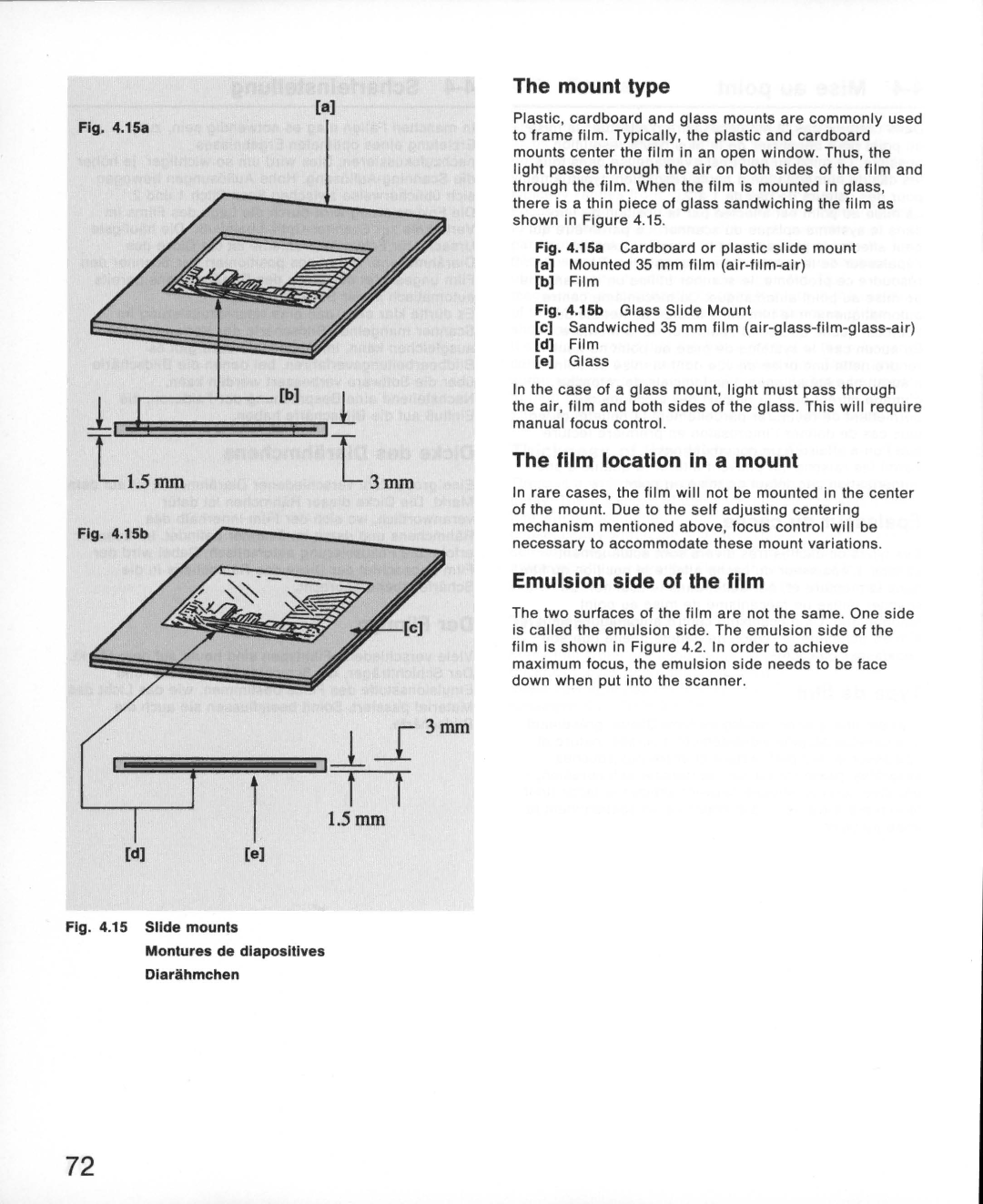
Fig. 4.15a
Fig. 4.15b
The mount type
[a]
Plastic, cardboard and glass mounts are commonly used to frame film. Typically, the plastic and cardboard mounts center the film in an open window. Thus, the light passes through the air on both sides of the film and through the film . When the film is mounted in glass, there is a thin piece of glass sandwiching the film as shown in Figure 4.15.
Flg.4.15a Cardboard or plastic slide mount
[a]Mounted 35 mm film
[b]Film
Flg.4.1Sb Glass Slide Mount
[c]Sandwiched 35 mm film
[d]Film
[e]Glass
In the case of a glass mount, light must pass through the air, film and both sides of the glass. This will require manual focus control.
The film location in a mount
In rare cases , the film will not be mounted in the center of the mount. Due to the self adjusting centering mechanism mentioned above, focus control will be necessary to accommodate these mount variations.
Emulsion side of the film
The two surfaces of the film are not the same . One side is called the emulsion side. The emulsion side of the film is shown in Figure 4.2. In order to achieve maximum focus, the emulsion side needs to be face down when put into the scanner.
~~ 3mm
~~l~ft
1.5mm
[d)[e]
Fig. 4.15 Slide mounts
Montures de diaposltives
Dlariihmchen
72
